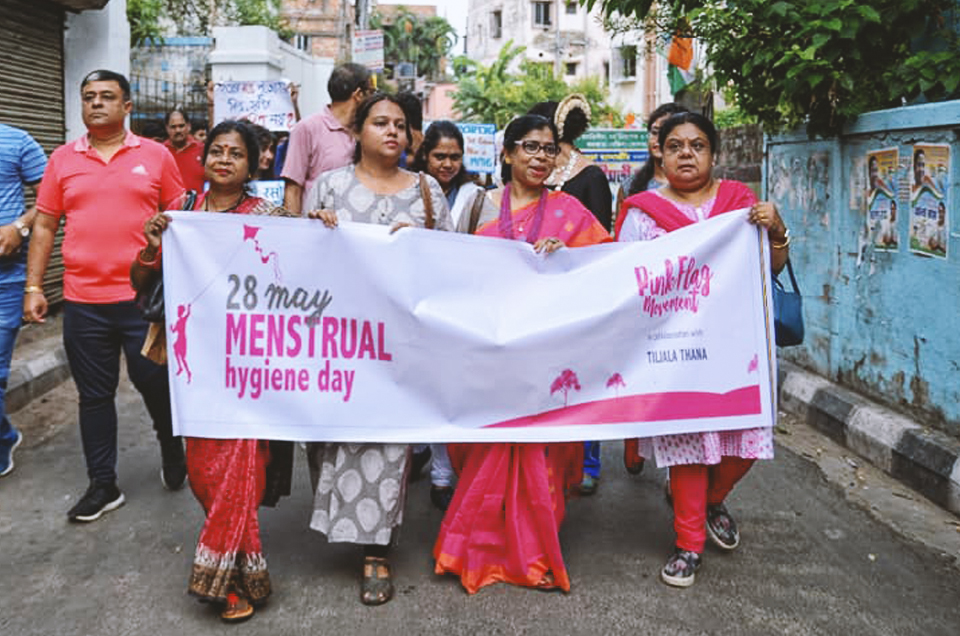
3 out of 10 girls are unaware about menstruation at the time of her first period.
Menstruation which is the prestigious inaugural ceremony of womanhood is still shrouded by myths & taboos. As a result the term used for such a normal physiological event cannot be expressed freely by women, terms like period, cycles, aunt red, crimson wave, in her flowers, etc are used. It has many negative cultural attitudes like, menstruating women and girls are ‘contaminated’, ‘dirty’ and ‘impure’. They are forced into seclusion, their mobility is reduced & they have food restrictions too. Unfortunately, the silence and stigma surrounding menstruation makes solutions for menstrual hygiene management a low priority & often ignored by professionals. The first step is to break this silence. The approach should be holistic to give women and girls the confidence and space to voice their need for improved menstrual hygiene management. It should not be restricted to mere management of those few days with sanitary napkins rather it should include a comprehensive knowledge of reproductive health, related emergency, education and rights. 26% of the total population is of reproductive age. Most of these women and girls will menstruate each month for between two and seven days. Menstruation is a natural phenomenon of the reproductive cycle, in which blood is lost through the vagina .Due to limited knowledge & shyness of mothers & women, the young girl child is not exposed to the biological facts or good hygienic practices. Rather they are subjected to restrictions & taboos. It is important for men & boys to understand menstrual hygiene so that they can realize & extend support to their wives, daughters, mothers, students, employees and peers. This issue has been dealt with by different personnel (administrative officers, different NGO’s, doctors, social workers) at different levels however the approaches are often piece meal. My endeavour is to give it a holistic approach, which includes the following steps :


Advocacy
This type of programmes should be linked with policy makers with an idea not to have any immediate effect which may fulfil the statistical data to satisfy our desires but it should be so designed that a palpable change may be felt over a reasonable period of time

Increased access
Recently sanitary napkins have been made available in schools & other institutions through vending machines. But it is insufficient according to the need of the hour. In villages & remote areas affordable, low cost quality products must be made available. This can be achieved by creating a permanent centre where the napkins are available through out the day.

Increased Availability
In villages & remote areas affordable, low cost quality products must be made available. This can be achieved by creating a permanent centre where the napkins are available through out the day.

Wide Spread Awareness
This awareness is not limited to only sensitising the young girl child but to have a sustained effect it should spread over to faith based leaders, political leaders, elderly women in the family, local influential people and administrative officer .This should be an ongoing process so that it has a long lasting effect on society.

Research
In-depth, long term research about the MHM could open a new window to understand the issues and its response. Data collected for a long period of time and its proper analysis will open various windows in the field of MHM.

Training
Generally training includes Frontline health and community workers,SHG’s, teachers who in turn imparts this training mainly to the young girl child and at times to their mothers too.

Safe Disposal
Safe disposal is absolutely necessary since improper method of disposal may lead to environmental pollution & health hazards.
